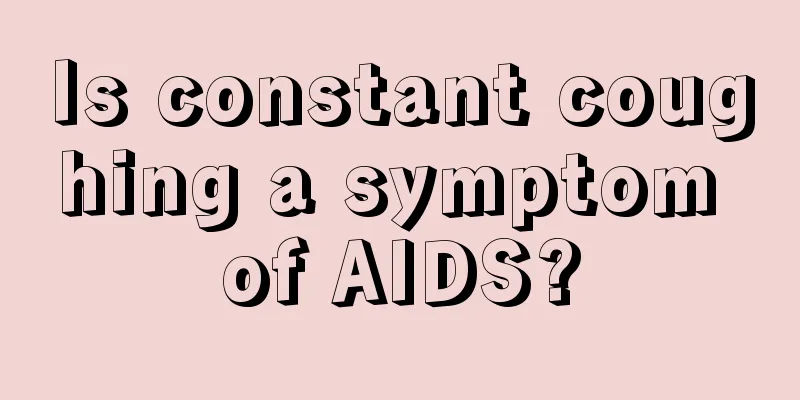What should I do if I always sneeze due to allergic rhinitis?

|
The time when seasons change is when allergic rhinitis is most likely to recur, which seriously affects people's normal life and work. So what should patients with allergic rhinitis do if they always sneeze? In fact, there are five treatment methods. The first is to prevent patients from contacting allergens. 1. Avoid contact with allergens (1) The number of dust mites in the room should be less than 20/m2; maintain the relative humidity of the living space below 60%, but too low (such as below 30%-40%) will cause discomfort; sweep the carpet; wash bedding and curtains. Mite allergens are soluble in water, and washing textiles can remove most of the allergens; use air purifiers and vacuum cleaners with filters. (2) Avoid allergens during the corresponding pollen allergy season. (3) Patients who are allergic to animal fur should avoid allergens. 2. Medication The following factors should be considered: efficacy, safety, cost/effectiveness ratio, etc. Intranasal and oral administration are commonly used, and the efficacy may vary between different patients. There is no long-term sustained efficacy after discontinuation of the drug, so maintenance treatment is required for persistent allergic rhinitis. Prolonged treatment does not lead to rapid drug resistance. Intranasal administration has many advantages. High concentrations of drugs can act directly on the nose, avoiding or reducing systemic side effects. However, for patients with other allergic diseases, drugs need to act on different target organs, and intranasal administration is not the best choice. Systemic drug treatment is recommended. (1) Antihistamines Oral or nasal second-generation or new H1 antihistamines can effectively relieve symptoms such as nasal itching, sneezing and runny nose. It is suitable for mild intermittent and mild persistent allergic rhinitis, and can be used in combination with nasal corticosteroids to treat moderate to severe allergic rhinitis. (2) Nasal corticosteroids can effectively relieve symptoms such as nasal congestion, runny nose and sneezing. For critically ill patients who do not respond to other drug treatments or cannot tolerate nasal medications, oral corticosteroids can be used for short-term treatment. (3) Anti-leukotriene drugs are effective for allergic rhinitis and asthma. (4) Chromone drugs are effective in relieving nasal symptoms, and eye drops are effective in relieving eye symptoms. (5) Intranasal decongestants can relieve nasal congestion symptoms caused by nasal congestion, and the course of treatment should be controlled within 7 days. (6) Intranasal anticholine drugs can effectively suppress runny nose. (7) Some Chinese medicines are effective in relieving symptoms. The treatment principles for children and the elderly are the same as those for adults, but special attention should be paid to avoiding adverse drug reactions. (8) Pregnant patients should use various drugs with caution. 3. Immunotherapy It is a treatment recommended by the World Health Organization that may change the course of the disease. Immunotherapy induces clinical and immunological tolerance with long-term effects, preventing the development of allergic diseases. Allergen-specific immunotherapy is commonly used by subcutaneous injection and sublingual administration. The treatment course is divided into a dose accumulation phase and a dose maintenance phase, and the total course of treatment is no less than 2 years. Standardized allergen vaccines should be used. The indications are mainly for patients with allergic rhinitis who are not responsive to conventional drug treatment. 4. Laser treatment: Use laser to carbonize and seal the nasal mucosa, which burns a large area, causes great pain after surgery, leaves large scars, has poor efficacy, and cannot cure the disease. 5. Surgical treatment: Traditional surgical treatment is relatively thorough, but it causes large wounds, great pain, and requires hospitalization. In addition, the disease is prone to recurrence after surgery, which brings great trouble and embarrassment to patients. Surgical treatment leads to the occurrence of empty nose syndrome and is very harmful, so patients must be cautious. The above methods are relatively common methods for treating allergic rhinitis, but they will cause certain harm to the body to a certain extent. Traditional Chinese medicine treatment uses pure Chinese medicine, which is safe, effective and has no side effects. It directly reaches the lesion and is a good way to treat rhinitis. What should I do if I keep sneezing due to allergic rhinitis? This is all we have to say. Allergic rhinitis is a common disease. Patients should take more precautions, exercise regularly, keep the air ventilated, try to avoid allergens, and seek timely treatment to avoid missing the best treatment time. |
<<: What are the effects and functions of grape seed mask?
>>: What is the reason for small pimples on the neck?
Recommend
Can chestnuts be dried in the sun?
Chestnut is a nut food with a relatively low wate...
Dietary considerations after tongue cancer surgery
Tongue cancer is very painful and can cause great...
Women with cervical cancer usually have itching in three places
Female cervical cancer is a serious malignant tum...
What are the symptoms of lung cancer? There are 5 symptoms when lung cancer occurs
Everyone knows that the main cause of lung cancer...
Is pharyngitis contagious?
With the faster and faster development of moderni...
How to prevent recurrence after nasopharyngeal carcinoma is cured
When it comes to nasopharyngeal cancer, the first...
How to remove chewing gum from clothes?
Chewing gum is a very popular snack in modern life...
Methods in the wine making process
Wine is a very famous red wine. Many people love ...
Tips for those who can't sleep during the night shift
When everyone grows to a certain age, they need t...
Is it good to have a bowel movement every morning
Defecation is necessary every day to effectively ...
One-time perm tutorial
Nowadays, people are very fashionable and often d...
What to do if you have less hair and poor hair quality
Some people have very good hair, and any hairstyl...
What causes liver cancer? How can liver cancer be prevented?
Liver cancer is a type of cancer with a high inci...
How to adjust the diet of lung cancer patients? Follow 4 principles to adjust the diet of lung cancer patients
No matter what kind of cancer we are attacked by,...
What should I do if I have acne on my arms
Nowadays, women are more concerned about beauty. ...









